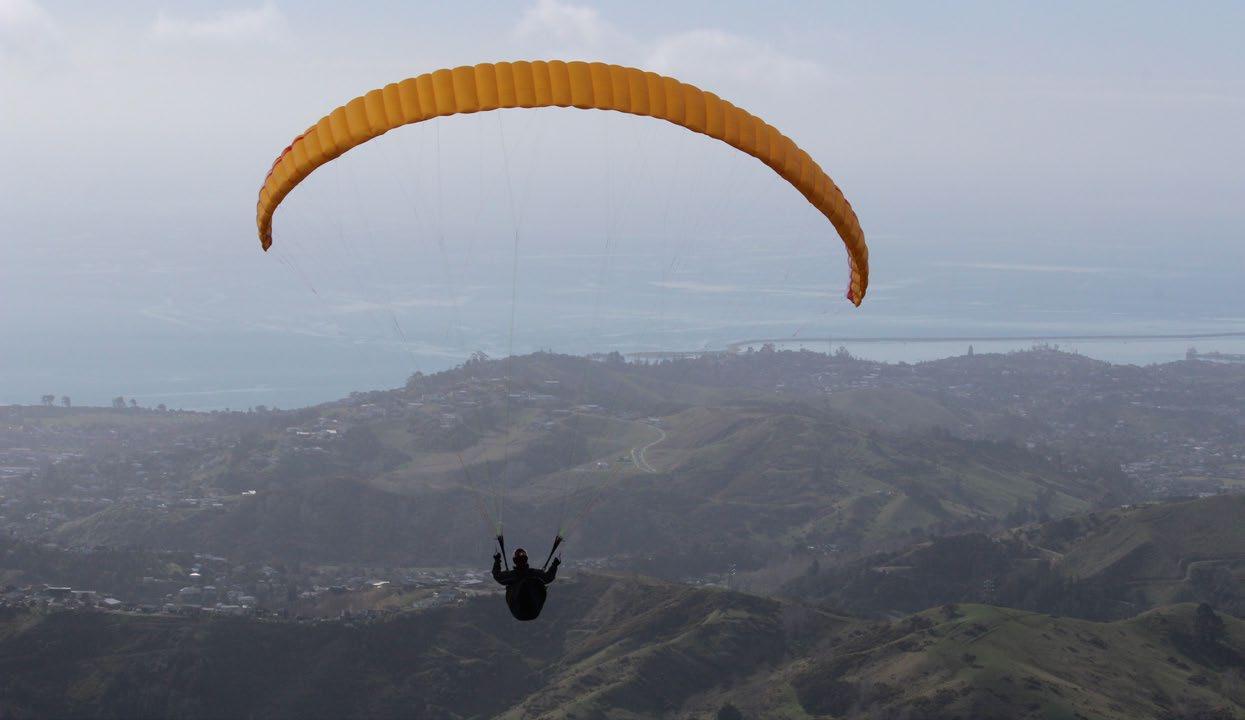
6 minute read
Disc, ride and glide
Jude Tarr glides over the hills above Richmond.
Getting a lift
Advertisement
Is it a bird, is it a plane? If you’re pointing at someone flying above the hills near Richmond, it’s more likely Jude Tarr, than Superman. Jude has been paragliding for 30 years and Nelson is such a great gliding spot, it was one of the reasons she shifted here from Wellington. It’s the excellent reputation of our paragliding schools, reliable weather, and easy access to take-off and landing sites that did it. Paragliding looks quite a daunting sport to learn, what with it not taking place on solid ground and all. But Jude says, think again. “The actual risk is much lower than the perceived risk and there's a couple of reasons for that. One is that there’s actually a really good training and learning progression that you need to follow in order to be able to go solo. That takes time, and it includes both practice and theory, you can't just rock up and you're suddenly flying.” She says most pilots are naturally risk adverse and always respect the weather conditions. You don’t have to be super fit to fly, but it’ll give your core a bit of a workout even though you're sitting in a harness while you’re glding. You also don’t have to run hard to jump off a hill or anything. “The paraglider actually always lifts you up off the hill, and if it's not lifting you up, you wouldn't be going.” On a bad day a flight might last only 10 minutes, and on a good day it could last several hours. Our region is home to many of the country’s top paragliding pilots. Some have done record-breaking flights, paragliding as far as Hanmer Springs (on purpose). Although being on solid ground seems like the natural place for a human to be, everyone else is down here too. It’s a lot quieter amongst the clouds. “A lot of people really like it because it allows them to relax. It allows them to be completely away from all distractions. When you fly it has to be the most disconnected you'll be from the earth, but it actually is the most connected you feel as a human being because you have to be aware of everything above, around and below you. The only thing that you are thinking about is flying.”
If you also only want to think about flying, start with a tandem. flywithusparaglidingnelson.com
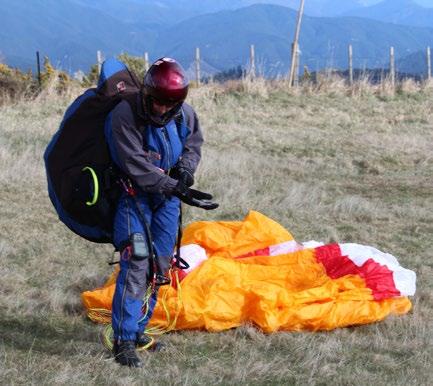
Marley carries the gear while Julian cycles the tracks on his municycle.
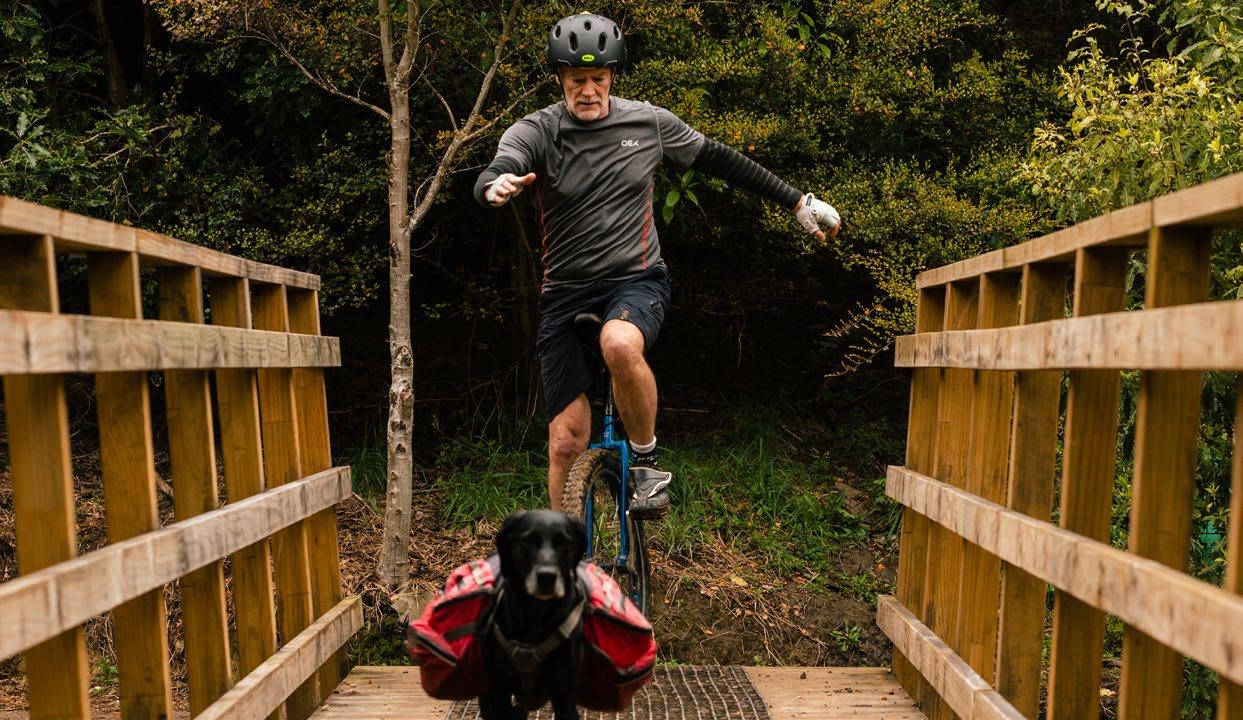
Wheelie good fun
If you’re a keen mountainbiker, you’ll meet plenty of riders on the tracks, but not too many of them getting around on one wheel. The municycler is actually a unicycler who added the M in ‘mountain’ to distinguish themselves from the more conventional one-wheel teeterers often found juggling chainsaws for the amusement of simple townsfolk. Julian Daly has been a municycler for about ten years and says it’s great fun, good for strengthening the core, and – no surprise - quite challenging. “When you're learning, the slightest of uphill slopes is virtually impossible. You just can't do it. But after a while you get used to it and then you’ve got to go downhill, which is easier. You just use the pedals to resist. But if you want something to get from A to B it's generally not the thing to use.” I wonder what the reaction is of mountain bikers who come across the municycler on a local track. “Oh, they think we’re mad.” Mad. Maybe this is the origin of the ‘m’ in municycle? The tyre on a municycle is different from your ordinary circus variety. Stronger, larger, thicker and better tread. And municyclers wear wrapround shin pads because the main injury comes from the pedals. Falling off is expected but because you have no handles or bike frame stopping your fall and you’re not generally going fast, landing on your feet is the most likely outcome. Julian has taught over 250 students and teachers at Nelson College to unicycle and reckons you shouldn’t presume you won’t be able to do it until you try. “You just don't know, it's one of those things you just have to give it a go. A lot of people say, ‘I can't balance, I can't do this,’ but sometimes they're really good.” The sport has a small but enthusiastic following in this country. Only 1,000 members on the New Zealand municycling Facebook page. Julian recommends, if you want to give it a go, start with a beginner bike which you can pick up for about $120 on Trade Me. There’s a (pun alert) steep learning curve so give yourself time. His neighbour learnt in half an hour, but he was on the right bike and had Julian to teach him. Take breaks because you’ll be working hard, but once you get the balance right, you’ll be away laughing. Like a mad person.
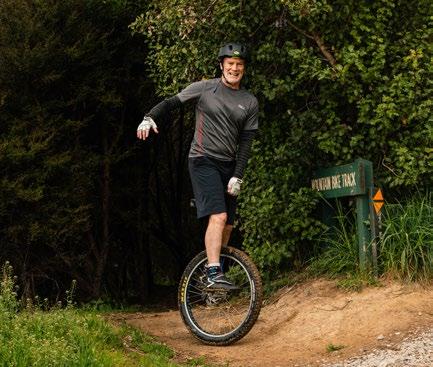
The frisbee club meets for a game at Tāhunanui Beach every Sunday afternoon.
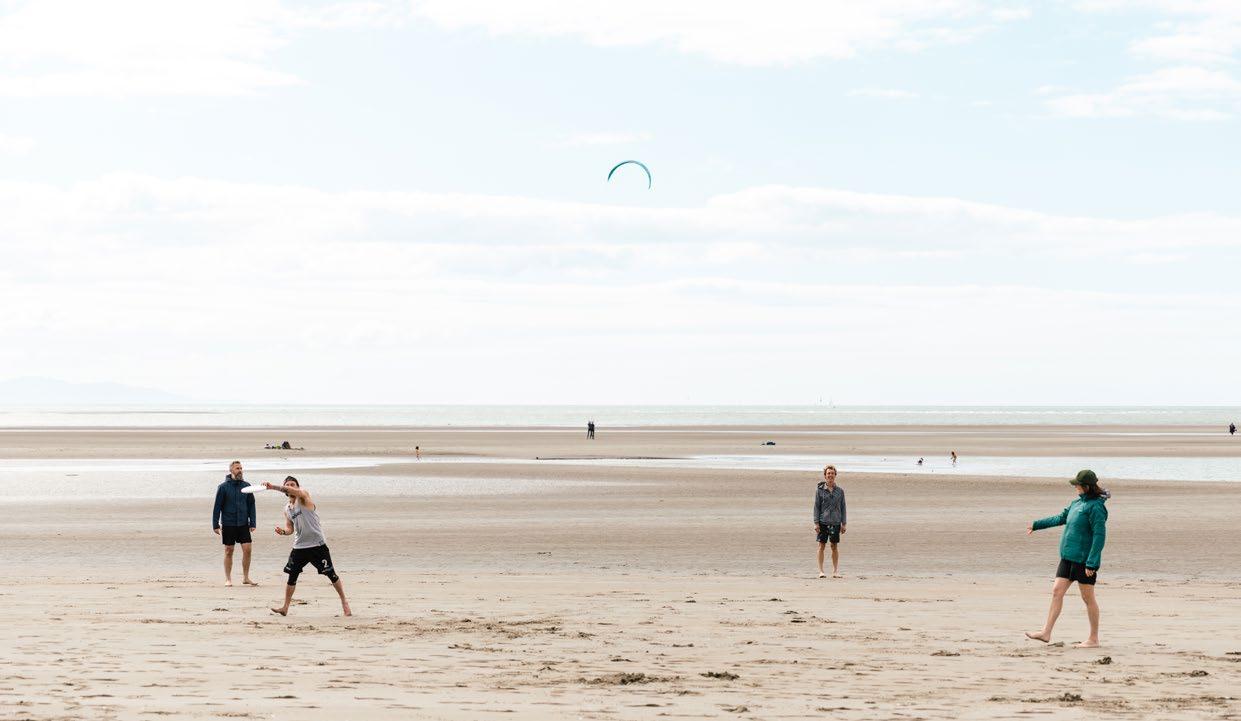
The ultimate
As far as ball sports go, ultimate frisbee is not like the others. Not playing with a ball is the biggest difference. But games don’t require referees either, players preferring rules called, the spirit of the Ggame, where the focus is on good sportsmanship and fair play. Ultimate frisbee (or disc, as it’s called colloquially) is a cross between netball and American football. You can’t run with the disc in your hand (stop, pivot and pass) and to score you need to throw it to a player in the end zone. It was first played in a New Jersey high school parking lot in 1968. By 1975 it was in the World Frisbee Championships and is now played in over 50 countries by thousands of players. About 100 of them, including Marcus Lovell, live in Nelson. Marcus is president of the local association and has been addicted to the sport for thirteen years. “It’s kind of like a drug, right. There is something about the flying disc and when you send it long, the way it floats in the wind, it's quite magical.” To the observer, the simplicity of disc is deceiving. Yes, you will see elementary skills we call catching, throwing and running, but Marcus says there is a fair bit of strategy in there too. And if at first you suck at it, don’t worry. The people who play are your biggest supporters, pulling out high-fives and encouraging words at the drop of a hat. More disc heads, than dickheads. “We are very close, socially. There’s quite a tight knit group of people that will play then go to the pub afterwards and they don’t get sick of each other. The bond in the club is quite strong, and enduring.”
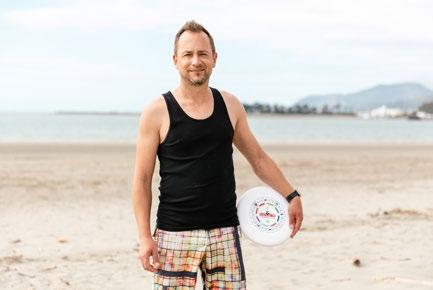
Marcus Lovell, president of Whakatū Ultimate - Nelson's ultimate frisbee club.
Maybe more competitive people veer towards sports where decisions aren’t judicated by players. Plus, on Sundays they play at Tāhunanui Beach. How much white line fever can you feel with sand between your toes? Not that the game is all peace and love. Competitiveness is still encouraged, just not at the expense of the rules, mutual respect, or enjoyment of the sport. “There isn't necessarily a right or wrong, it's just a system of managing people's perceptions so that you can reach a point where you can restart the game.” The local club players are a mix of men and women (60:40) and 14 - 60 years of age. Despite appearances, it’s a pretty intense workout with fast-paced play interspersed with a quick breather between points.
If you’re looking for a new summer sport, games happen Monday, Wednesday and Sundays. whakatuultimate.nz










